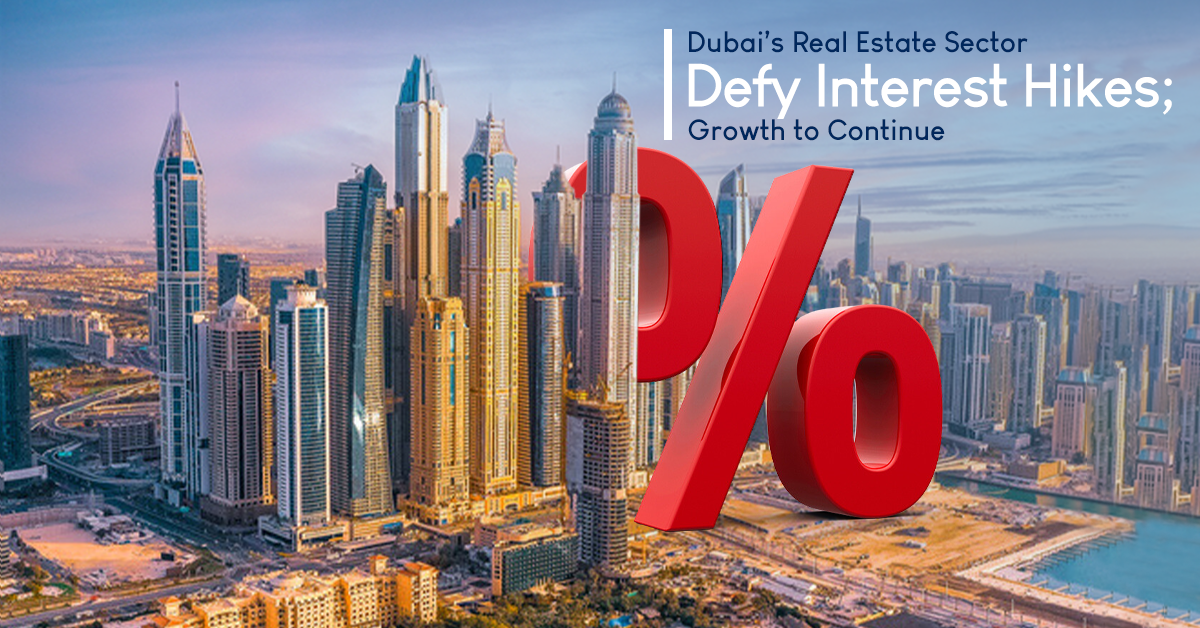Dubai’s real estate sector to defy interest hikes; growth to continue
On February 2, 2023, the Central Bank of the UAE raised its base rate for the Overnight Deposit Facility (ODF) by a quarter of a percentage point to 4.65% following the US Federal Reserve’s increase in interest rates to bring down inflation.
What impact will this have on Dubai’s real estate sector?
Well, not as much as previously expected because of several reasons. First off, almost 70% of real estate transactions in the UAE are carried out in cash. It stands to reason that a hike in the interest rate will not really slow down what is primarily a cash-heavy market. This is not to say there will be no fallout from the Central Bank’s decision — the impact will be minimal.
So, expect the market to grow at around 5% this year, compared to 11% in 2022. Do recall that in 2021, the real estate market of Dubai grew by an impressive 16%. Evidently, there has been a downward trend since, but the growth has not stopped. Only the rate of growth has flattened to some extent.
The property market is expected to continue with its upward curve but at a somewhat moderate rate. The luxury segment and the holiday home markets are even less likely to be impacted by the rate hike. The demand in these segments is constituted by buyers who are driven by structural strengths in markets; not short-term economic cycles.
Secondly, the robustness of the Dubai property market and the perks it offers to investors, owners, and end-users will continue to attract buyers from around the world. Even if the interest rate goes up further by the end of the year to 4.90%, as expected, the market will still be defiant and refuse to shrink. There will be plenty of growth drivers to keep the momentum going. Factors such as investor sentiment, confidence about future outcomes, expected returns and resale value, the overall stability of the UAE economy, the peaceful geopolitical atmosphere in the nation, high quality of life, and so forth will ensure that the market continues to do well.
Another reason why the real estate sector will remain immune to successive rate hikes is that in Dubai, almost half the transactions are off-plan. This means buyers and investors do not need finance to make the purchase. They opt for developer payment plans, which enable them to clear liabilities over a period of four to five years.
As for prices, they are expected to increase by 5% this year, owing to the strong demand in the market, as high-net-worth individuals (HNWIs) and foreign investors continue to exhibit a great deal of interest in the property market of Dubai and investments are pouring in. Presently, the market is being driven by strong demand for rentals, where the gross yield has increased to 6.5%, up from an average of 5.5%, on a Y-o-Y basis.
So, come what may, the real estate sector will continue to remain one of the star performers of Dubai. And as other developed economies emerge from the shadows of the myriad problems besetting them presently, Dubai’s real estate sector will make further recovery and register growth due to its global investor pool.




